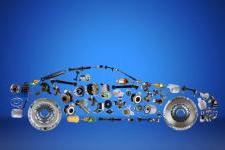Proposed UK BIK Tax Changes: Why Acting Before April 2025 Could Save You Thousands
The UK Budget of October 2024 introduced pivotal changes to vehicle taxation, affecting how Benefit-in-Kind (BIK) tax applies to certain vehicles, including double cab pick-ups. From April 2025, these vehicles will be classified as cars rather than commercial vehicles for tax purposes. This shift will have significant financial implications for businesses and employees who use double cab pick-ups. However, by taking delivery before the end of the 2024/2025 tax year, individuals and companies can protect themselves from these increased costs until 2028.
Here’s everything you need to know about the changes and why acting quickly is essential…
The BIK Reclassification: What’s Changing?
Traditionally, double cab pick-ups have been treated as vans for BIK purposes, benefitting from a fixed, low-rate tax regime regardless of emissions or list price. This made them an appealing option for businesses and employees, as they offered the utility of a van with passenger comfort for personal use.
However, under the revised rules effective from April 6, 2025, these vehicles will be treated as cars. This reclassification will see them taxed at car BIK rates based on CO2 emissions and list price, increasing their cost of ownership.
Why Act Before April 2025?
To ease the transition, the government has introduced transitional provisions for vehicles purchased, leased, or delivered before April 2025. These vehicles will retain their current van classification for BIK purposes until:
- The vehicle lease ends
- The vehicle is sold
- It’s April 2028
By acting before the end of the current tax year, businesses and individuals can lock in the lower fixed BIK rates for an additional three years, avoiding the steep cost increases associated with the new rules.
Impacts on Employers and Employees
Employees:
Increased Income Tax Employees who drive company-provided double cab pick-ups will face higher BIK tax rates, leading to a notable rise in their income tax liability. For higher-rate taxpayers, this increase can amount to thousands of pounds annually, making pre-April 2025 delivery a critical cost-saving measure.
Employers:
Higher National Insurance Contributions Employers will also feel the strain as National Insurance Contributions (NICs) are tied to BIK values. The reclassification means higher NICs for each double cab pick-up treated as a car. Additionally, the new rules will impact capital allowances, reducing the tax efficiency of these vehicles for business purposes.
Long-Term Implications: Planning for Change
This reclassification aligns with the government’s broader agenda to encourage the adoption of lower-emission vehicles. Businesses are increasingly incentivized to explore alternatives like electric vans, which offer more favourable BIK rates and tax benefits.
Employees, too, should assess their options. Electric or hybrid vehicles may present cost-effective alternatives that align with evolving tax policies. Consulting with tax advisors can help both parties navigate the transition smoothly.
Overall
The impending BIK tax changes for double cab pick-ups represent a substantial cost increase for both employees and employers. However, the transitional arrangements provide a unique opportunity to safeguard against these hikes by taking delivery of new vehicles before April 2025.
This proactive approach ensures access to current, lower tax rates until 2028, offering a window of financial protection as businesses and individuals adapt to the new landscape. For those considering a double cab pick-up, the time to act is now. Don’t miss out on significant savings, secure your vehicle before the tax year ends!
At Rivervale, we’re here to guide you through these changes. Whether you’re looking to lease a vehicle or explore electric alternatives, our team is here to help. Contact us today to learn more!


